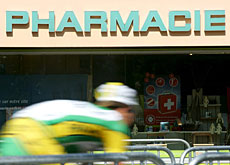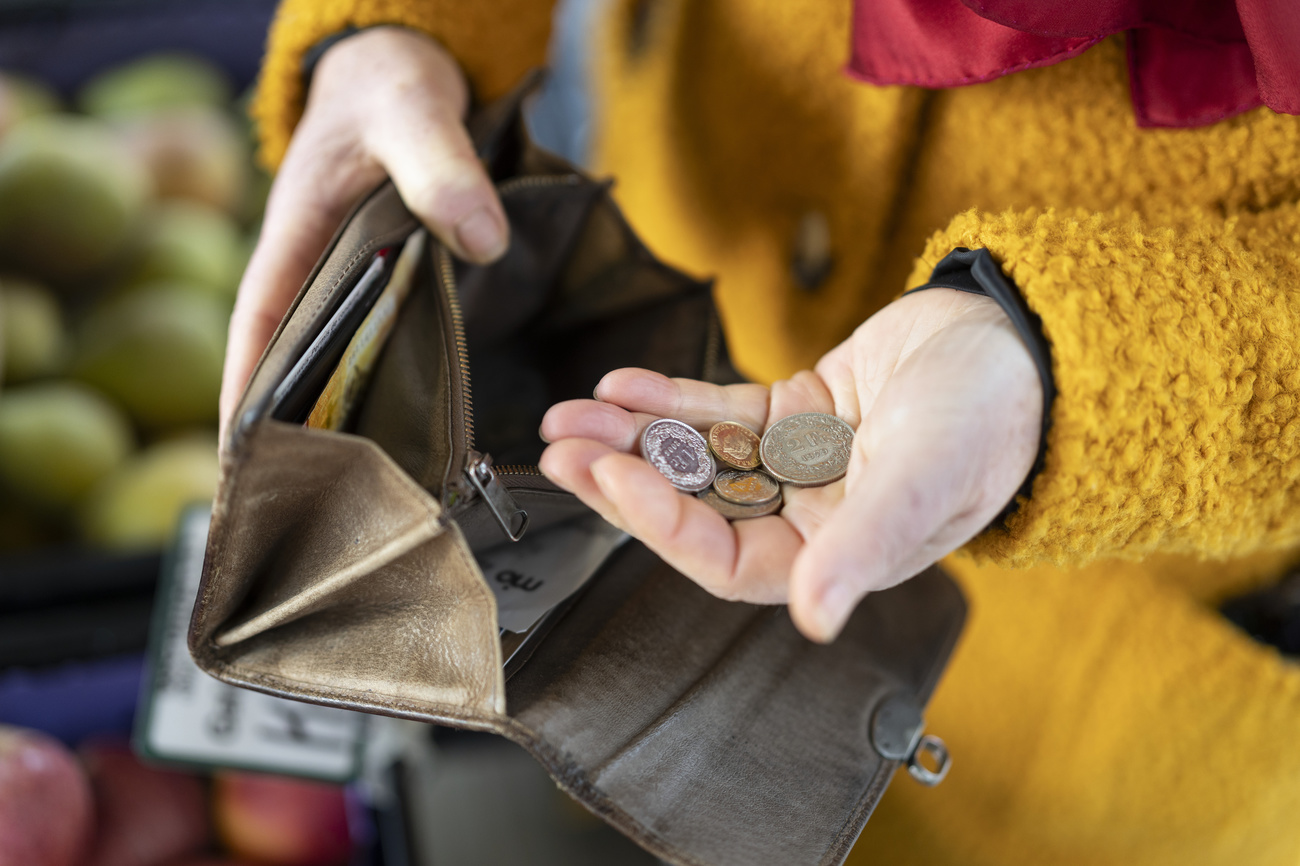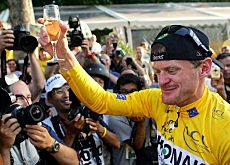Cycling chief admits doping battle is lost

The head of the Swiss Cycling Federation says current efforts to eradicate doping are doomed and the only way to save the sport is to rebuild it from scratch.
Lorenz Schläfli, who also leads the federation’s anti-doping section, told swissinfo that cycling was in the grip of a “mafia” that had poisoned the sport from top to bottom.
Schläfli was speaking on Wednesday after one of the pre-Tour favourites, Alexandre Vinokourov from Kazakhstan, tested positive for blood doping after winning Saturday’s time-trial.
The news is a further blow to cycling’s blue-riband event, which is still reeling from the doping scandal involving 2006 champion Floyd Landis, who rode for Switzerland’s Phonak team.
swissinfo: What is your reaction to Alexandre Vinokourov’s positive test and the fact that the Tour de France and cycling are once again mired in scandal?
Lorenz Schläfli: Normally you’d be shocked by something like this, but in reality it comes as no surprise. There have been a number of rumours surrounding Vinokourov, and we know that anti-doping controls in Kazakhstan are not the same as in Switzerland. His performances during the Tour have also raised suspicion. Yesterday he was so quick that it just wasn’t credible. Vinokourov has been incredibly stupid, but it’s not just him: it’s also the people around him.
swissinfo: A cloud still hangs over race leader Michael Rasmussen after he missed a number of drug tests. Some say the Dane should never have been allowed to start the Tour. What is your view?
L.S.: He should never have started the race. It appears he missed a number of out-of-competition tests and someone like that should not be allowed to take part.
It’s a tough thing to say, but at the moment we have a situation in cycling where the federations are fighting against a mafia made up of those with financial interests in the sport. It’s all down to a question of money and it doesn’t just concern the riders – it’s the doctors, the physiotherapists, the mechanics, the managers…
swissinfo: Dick Pound, president of the World Anti-Doping Agency, says “it is almost impossible to be at the front of the pack these days without doping”. Is he right?
L.S.: What you have to bear in mind is that each country has its own laws and anti-doping regulations. In Switzerland we do things differently from Kazakhstan or Spain or Portugal or Italy. If testing were as strict as it is in Switzerland, there would undoubtedly be less doping. But with so much doping around, it is impossible to be at the front of the pack without being doped.
swissinfo: The International Cycling Union (ICU) has come in for heavy criticism for not cleaning up the sport. Is this criticism justified and why is the anti-doping system not working?
L.S.: It’s a difficult situation for the ICU, because they have to contend with different regulations and legal systems in each country. Right now it’s a bit like ships that sail under a flag of convenience: riders who want to dope will get a licence from a country where there is no testing.
The ICU is also having to fight against those with financial interests, who only want to make money – and this is a tough challenge. But perhaps the ICU could have been a bit tougher.
swissinfo: What is the situation in Switzerland?
L.S: Switzerland, along with France, has the toughest anti-doping controls. In Switzerland an independent anti-doping commission financed by Swiss Olympic and the Federal Sport Office handles testing and disciplinary procedures, and not the national federation. I have no say in what goes on. In the first quarter of this year there were 105 tests, most of them out-of-competition and carried out on elite Swiss cyclists.
swissinfo: Can anything be done to clean up the sport – or is this an impossible task?
L.S: I think it’s possible, but we have to be very, very strict. That means we have to change everything surrounding the sport: all the doctors, all the sporting directors, all the managers –everything has to go. And we have to handle it in every country the same way. We have to start from scratch.
I’m convinced about this. If we carry on fighting against doping as we are now, we may be able to reduce it a little but we will never succeed in eradicating it.
swissinfo-interview: Adam Beaumont
Michael Rasmussen: The overall leader was removed from the race by his Rabobank team after winning Wednesday’s stage, The expulsion, which was ordered by the Dutch team’s sponsor, was linked to “incorrect” information that Rasmussen gave to the team’s sports director over his whereabouts last month. He missed random drugs tests on May 8 and June 28.
The Coffidis squad also confirmed its rider Christian Moreni of Italy had failed a doping test, prompting the withdrawal of the entire Cofidis team.
Alexandre Vinokourov: Forced out of this year’s Tour, along with all members of the Astana team on Tuesday, after he tested positive for a banned blood transfusion. The Kazakh rider, a one-time favourite to win cycling’s premier event, was tested after his victory in the 13th stage time trial on Saturday. He also won Monday’s mountain stage.
Floyd Landis: The American, who rode for Switzerland’s Phonak team, is still trying to prove he did not take testosterone on his way to victory at last year’s Tour. Landis says the French lab which tested his samples made key errors. His 2006 victory is not recognised by organisers.
Jan Ullrich: Forced out on the eve of last year’s race after being linked to “Operation Puerto” – a massive Spanish investigation into a blood-doping scandal. The 1997 Tour winner, who is a Swiss resident, has retired and denies any wrongdoing. He is still under investigation.
Ivan Basso: The Italian rider was also kicked out of last year’s Tour. He received a two-year doping penalty from his cycling federation in June and accepted the punishment. The 2005 Tour runner-up has confessed to “attempted doping” but says he never actually went through with it.
Zurich’s Tages-Anzeiger – one of Switzerland’s biggest newspapers – announced on Wednesday it would limit its coverage to results and doping stories because it could no longer report on the race objectively.
It described the race with its doping scandals as the “Tour de farce”, saying the event had reached the lowest point in its history.
In a related development, Swiss bicycle manufacturer BMC of Grenchen said it was reconsidering its partnership with the Astana team after its star rider, Alexandre Vinokourov, was ejected.

In compliance with the JTI standards
More: SWI swissinfo.ch certified by the Journalism Trust Initiative












You can find an overview of ongoing debates with our journalists here . Please join us!
If you want to start a conversation about a topic raised in this article or want to report factual errors, email us at english@swissinfo.ch.